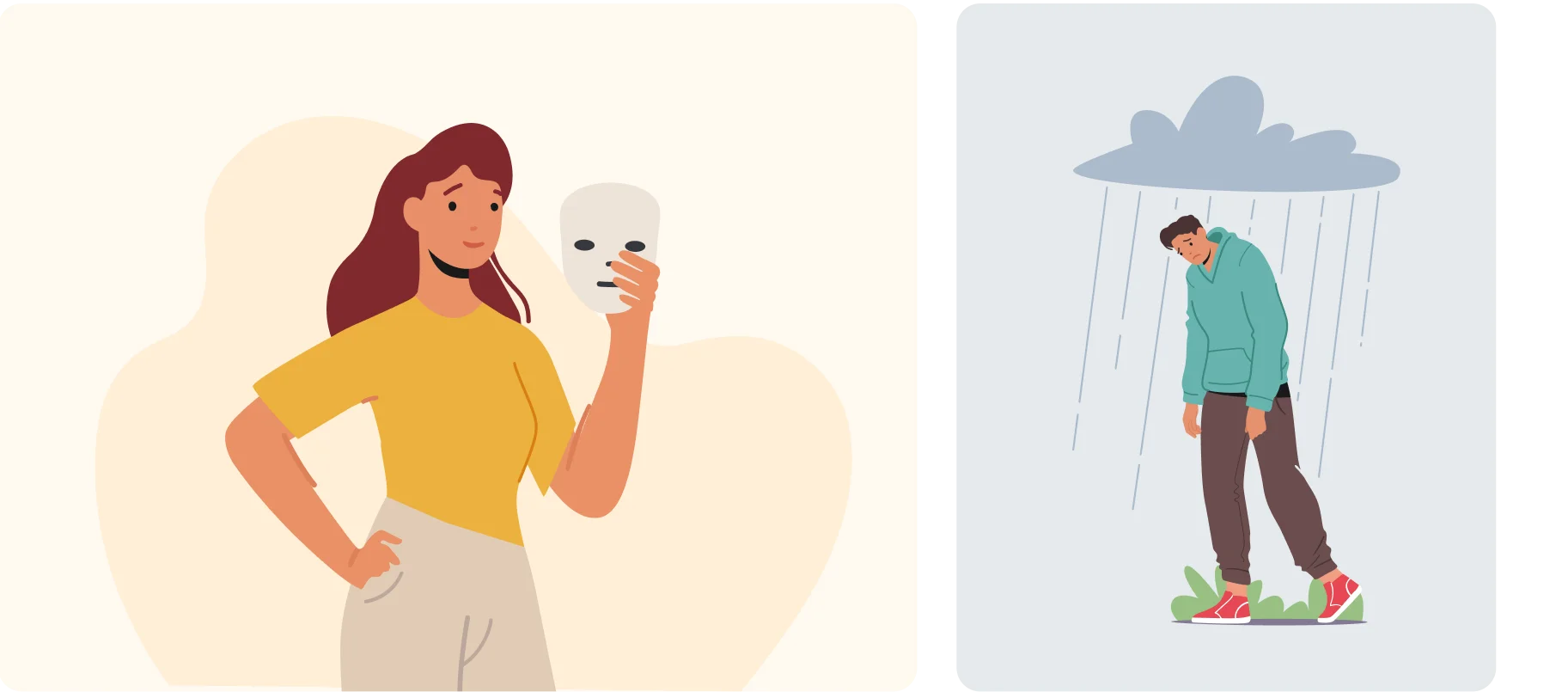Definition
Depression is a mental health disorder characterised by low mood, sadness, hopelessness, and a lack of interest or pleasure in activities. More than a mood fluctuation where you spend a few days feeling unhappy, depression is long lasting (more than 2 weeks) and often reoccurs, and can significantly affect your daily life, relationships, and overall wellness.

Causes
Everyone’s experience with depression is unique, and the causes can vary from person to person and are often result of a combination of several factors working together, including:
- Imbalances in brain chemistry, such as serotonin, norepinephrine, and dopamine
- A family history of depression
- Certain personality traits, such as low self-esteem, pessimism, or a tendency to overthink
- Stress from experiencing traumatic events, such as abuse, loss of a loved one, major life changes, financial difficulties, unemployment, relationship problems, or social isolation
- Chronic pain, chronic illness, hormonal imbalances (e.g., thyroid disorders), or neurological conditions
- Substance abuse and addiction
Symptoms
The symptoms of depression vary depending on the severity of the problem, from mild to severe, and can affect everybody differently. Here are some common symptoms to look out for:
- Feeling low (very tearful, hopelessness and sadness) for more than 2 weeks
- Losing interest in the things you enjoyed before, including sex and food
- Feeling tired all the time
- Getting poor sleep
- Feeling aches and pains
In advanced stages, depression can make people feel like harming themselves or have suicidal thoughts.




























